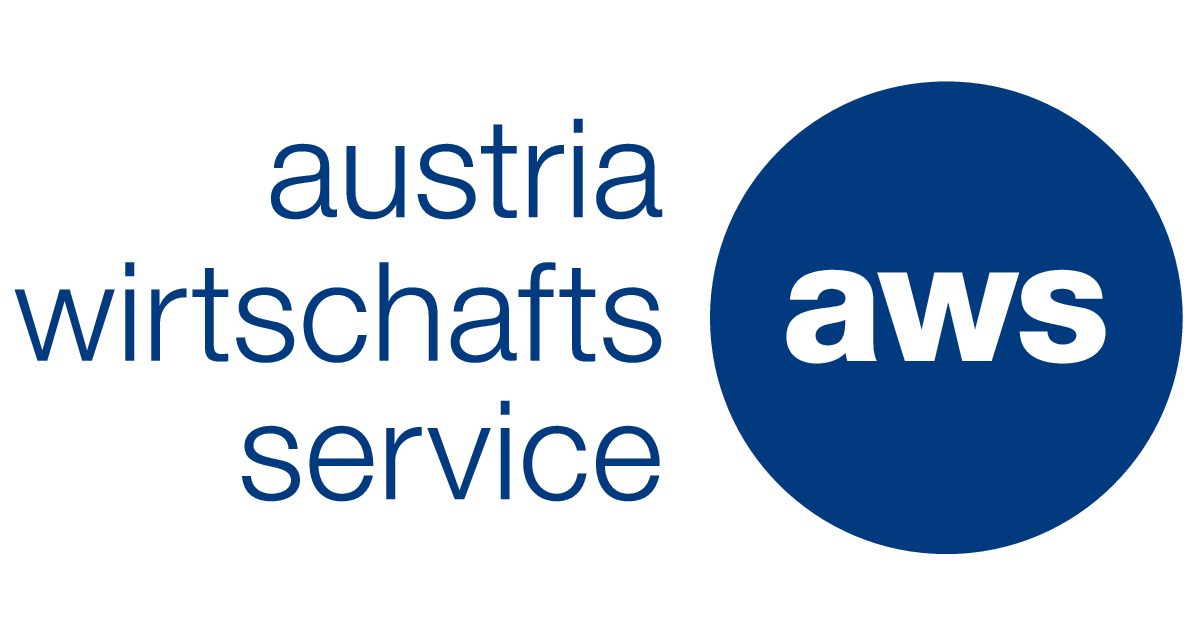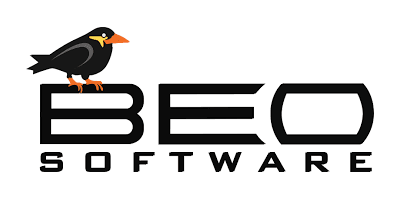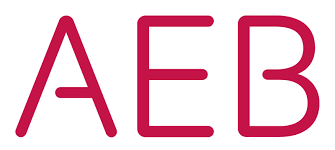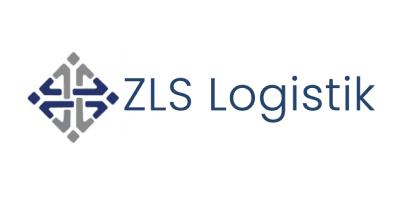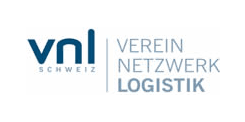How Generative AI is Changing Customs Clearance
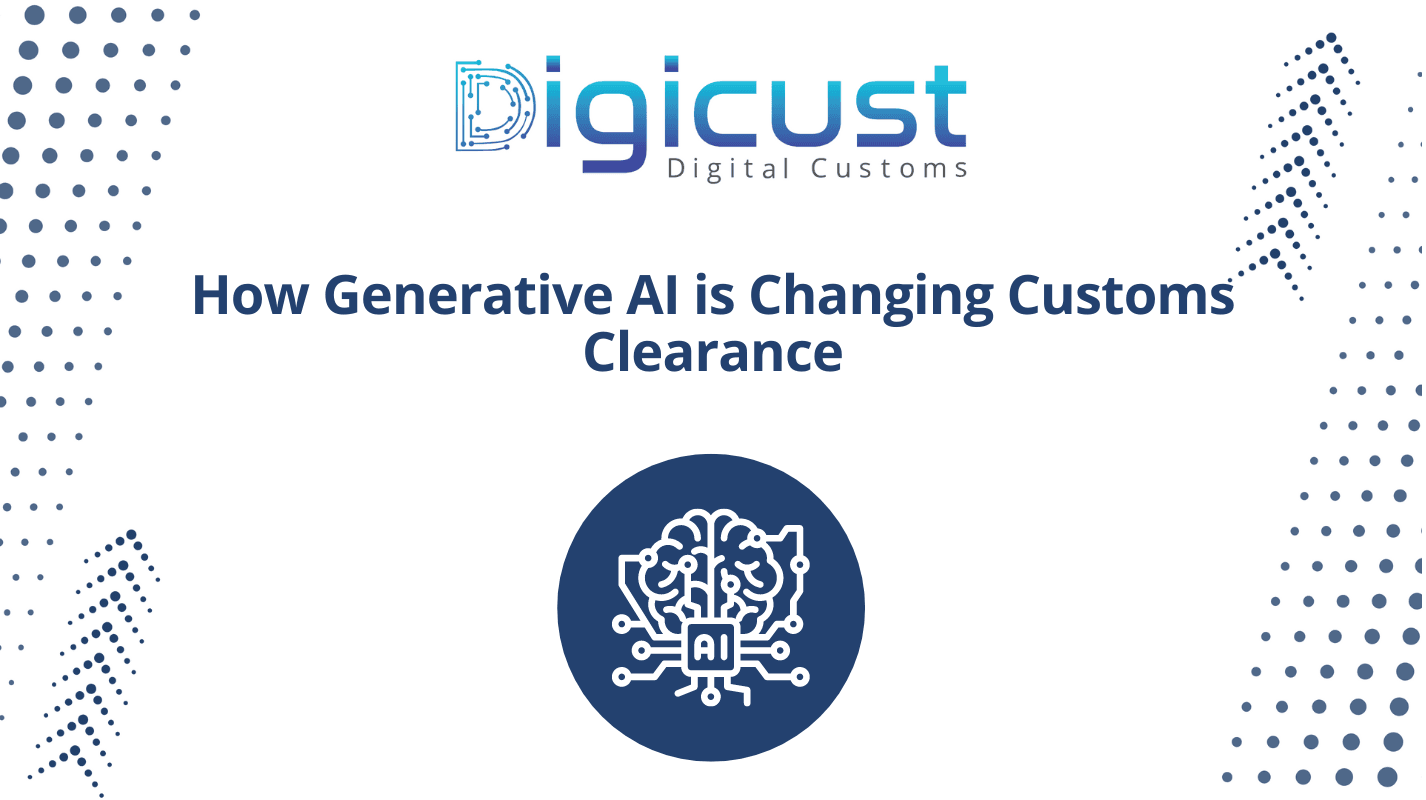
Over the past few months, the world has witnessed a remarkable transformation triggered by generative AI and ChatGPT. These revolutionary technologies have demonstrated the immense value they can create for businesses. As trade regulations become more complex and businesses face a deluge of data, generative AI is becoming an indispensable tool to ensure compliance with trade laws.
Digicust is at the forefront of harnessing these disruptive technologies to revolutionise the landscape of customs technology in the $22 trillion global trade industry. Let's take a look at some of the ways generative AI is being used in trade compliance:
Automation: Generative AI is having a profound impact on trade compliance by automating various compliance processes.
Traditionally, these processes were manual and time-consuming, requiring significant resources to ensure compliance with all rules and regulations. However, with the advent of generative AI, companies can now automate numerous tasks, significantly reducing the likelihood of errors and speeding up processes.
For example, Digicust uses AI in its Intelligent Document Processing module to automate the document processing workflow.This module quickly extracts information from customs documents of any format (e.g. images, semi-structured data, PDFs, XLS files) and accurately fills out customs declarations within seconds.
Risk management: Generative AI also improves risk management capabilities in the trade compliance industry.
By analysing large amounts of data from multiple sources, AI can identify potential risk areas, such as transactions that are more likely to breach trade regulations. This enables companies to proactively manage risk and ensure strict compliance with trade laws and regulations. This is a groundbreaking advancement in technology.
HS Code Search: One of the biggest challenges in trade compliance is the accurate identification and assignment of Harmonised System (HS) codes.
The use of incorrect HS codes can have legal consequences and lead to incorrect customs and tax payments. Digicust offers Taric, an advanced service in the market that uses generative AI along with multiple layers of machine learning and AI technologies. By analysing product features and characteristics, Taric generates detailed descriptions that include information about composition, materials, intended use and other relevant details. This real-time description is then used to determine the appropriate HS code with over 95% accuracy. Generative AI streamlines the HS code-finding process, reducing the risk of errors or misclassifications and ultimately saving companies valuable time and money in international trade.
In summary, generative AI has the potential to revolutionise the customs technology industry in numerous fascinating ways. Whether in product manufacturing, supply chain management or in delivering personalised customer experiences, AI enables companies to improve their efficiency, effectiveness and value proposition.
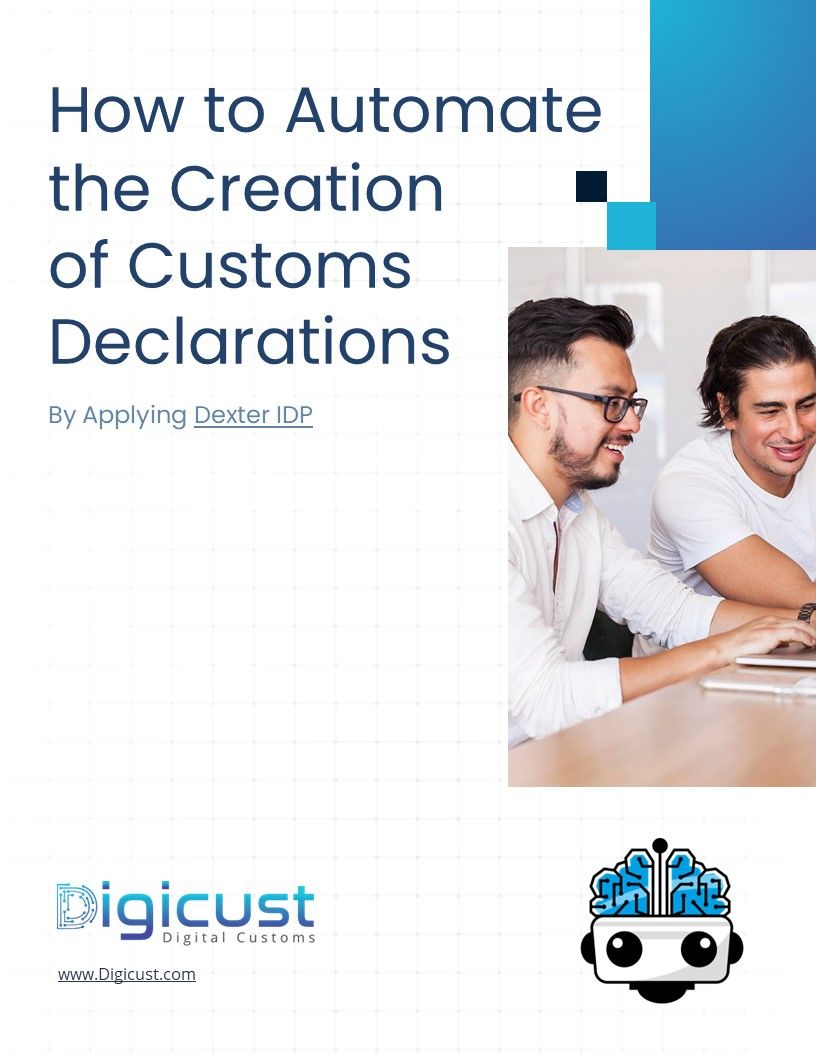
How To Automate The Creation of Customs Declarations - By Applying Dexter IDP
Learn about requirements engineering, benchmarking IDP providers, and automating customs declarations with Dexter IDP.
News from our Blog
Learn about customs clearance, foreign trade, our product updates and our latest achievements.

